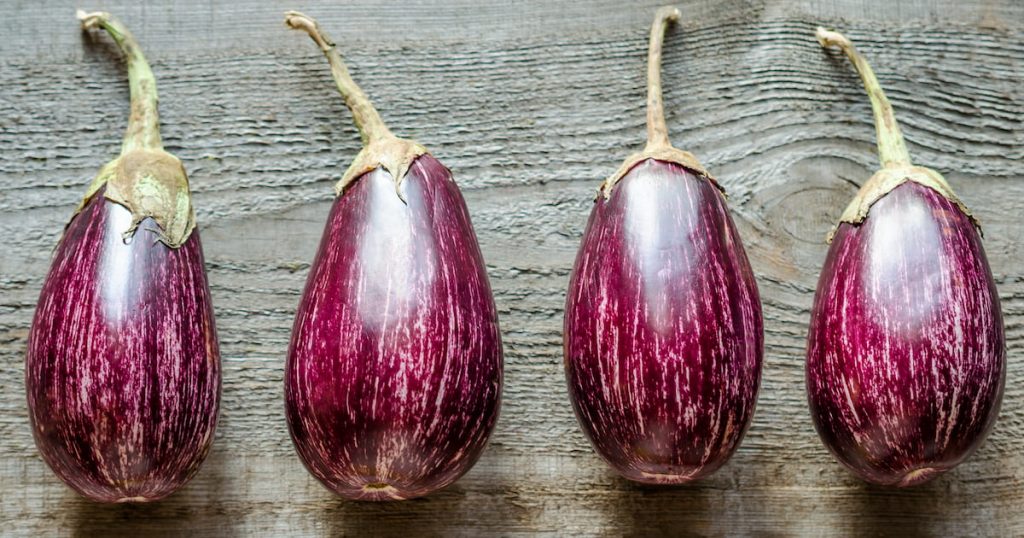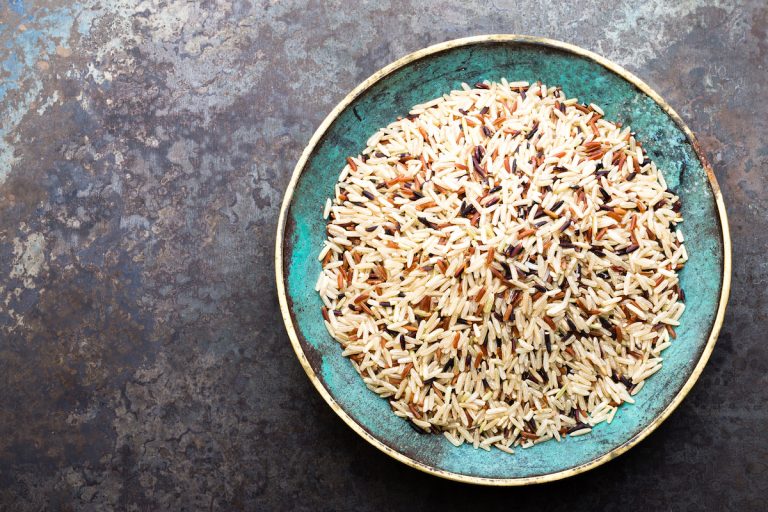Is Eggplant Paleo? (Is It Considered a Vegetable?)
Having to abandon many of the food items you are used to when going paleo can get pretty daunting. But then, you could spice things up by trying out a new set of ingredients.
So, say you come across eggplant in the supermarket. Should you pick them for inclusion in your paleo diet?
Are eggplants paleo-friendly? Well, let’s see.
Is eggplant paleo?
Like many natural, unprocessed foods, eggplant is paleo. However, if you intend to include it in your paleo diet, you must consume it in moderation.
Eggplants contain traces of solanine and nicotinoids. In moderate amounts, the quantities of these compounds in eggplants are insignificant. So, they pose no problem.

You are probably wondering why solanine and nicotinoids affect how many eggplants you can have in your paleo diet. Well, we discuss that and answer some other questions below.
Is Eggplant a Vegetable?
Eggplant is paleo. It is whole, natural, unprocessed, and healthy for the body. So, its suitability for paleo diets is not surprising. However, what might surprise you is whether eggplant is a fruit or a vegetable.
So, is eggplant considered a vegetable? Contrary to what many people think, eggplant is not a vegetable. Considering its low sugar content, it is not surprising that people would think that eggplant is a vegetable. But eggplant has seeds – a primary requirement of all fruits. Therefore, it is a fruit.
Eggplant belongs to the Nightshade family (Solanaceae) – the same family tomatoes and bell peppers belong to. Unsurprisingly, eggplant and tomatoes grow similarly. Eggplants and tomatoes grow as vines, and they belong to the berry class of fruit.
Moderation Is Vital When Adding Eggplant to a Paleo Diet
While eggplant is okay for your paleo diet, you must only eat it moderately. Like many other plants in the Nightshade family, eggplant contains some solanine—a potentially toxic alkaloid.
If you eat moderate amounts of eggplant, you won’t have to worry about solanine. But if you consume too many eggplants regularly, you may suffer solanine poisoning.
Solanine toxicity may cause nausea, vomiting, burning sensation in your throat, and heart arrhythmias.
In some cases, it may be fatal. So, while eggplants are healthy and paleo, consume them in low to moderate amounts.
Besides solanine, eggplants may contain nicotine, especially in their seeds. Of course, you must already know that nicotine is not paleo. But in moderate amounts, the nicotine in eggplant seeds is insignificant. So, it doesn’t affect the paleo-friendliness of eggplant.

Nutrition Facts of Eggplants
Apart from the alkaloids, the following are some vitamins and minerals you can get from 100 grams of eggplant cubes:
Calories
In 100 grams of eggplant, you can expect up to 35 kcal. This makes up around 1 to 3.5% of the daily energy requirement for adults.
Fiber
You will get up to 2.5 grams of dietary fiber. This contributes around 7 to 11.2% of the daily fiber requirement for adults.
Carbohydrate
In 100 grams of eggplant, you can get around 9 grams of carbohydrate. Of the 9 grams of carbs, around 30% is sugar.
In other words, 100 grams of eggplant only contains around 3 grams of sugar. This makes it perfect for a low-sugar diet.
Protein
If you want some protein, eggplants are not the ideal option. In 100 grams of eggplant cubes, you may only get around 1 gram of protein.
Fat
You could almost say eggplants are fat-free as they only contain around 0.2 grams of fat per 100-gram serving.
Potassium
Potassium is one of the most abundant minerals in eggplants. In 100 grams of eggplants, you can get up to 122-229 mg of potassium.

Phosphorus
Phosphorus is also pretty abundant in eggplants. You get around 15-24 mg of phosphorus in 1 cup of eggplant cubes.
Magnesium
A cup of eggplant cubes will give you approximately 11-14 mg of magnesium.
Folate
When you eat 100 grams of eggplant, your body should get up to 14 micrograms of folate.
Vitamin A
A 100-gram serving of eggplant offers around 23 IUs of vitamin A, making around 2.5-4% of the daily requirement for human adults.
Vitamin C
In 100 grams of eggplant, there’s just around 2.2 mg of vitamin C. You can get more vitamin C from other fruits like orange, mango, and cantaloupe.

Health Benefits of Eggplant
- Eggplants contain antioxidants, one of which is nasunin – the substance responsible for their purple color. The antioxidant content of eggplants can help the body fight oxidative stress. They may also contribute to the prevention of some chronic diseases.
- In ayurvedic medicine, eggplants helped treat diabetes, and in recent times, they might still help manage the same disease. Since eggplants are high in fiber, they can help prevent spikes in blood sugar.
- Since eggplants are low in fat and sugar but high in fiber, they are great for weight loss. You won’t have to worry about gaining weight since the fruit has low fat and sugar. Then with high fiber, you will get full quickly, reducing the need for you to snack on something every now and then.
- Eggplants may also contribute to eye health because they contain lutein and zeaxanthin – two antioxidants that protect and improve vision.
- Besides nasunin, eggplants contain chlorogenic acid, another antioxidant. Some studies show that chlorogenic acid may help reduce bad cholesterol in the body. This, in turn, leaves you at a lower risk of heart diseases, nonalcoholic fatty liver disease, and diabetes.
Final Take
Eggplant is paleo-friendly, but you should only consume it in low to moderate quantities. While it has multiple benefits to offer, it contains some alkaloids that could be toxic when you consume large amounts of eggplant.







